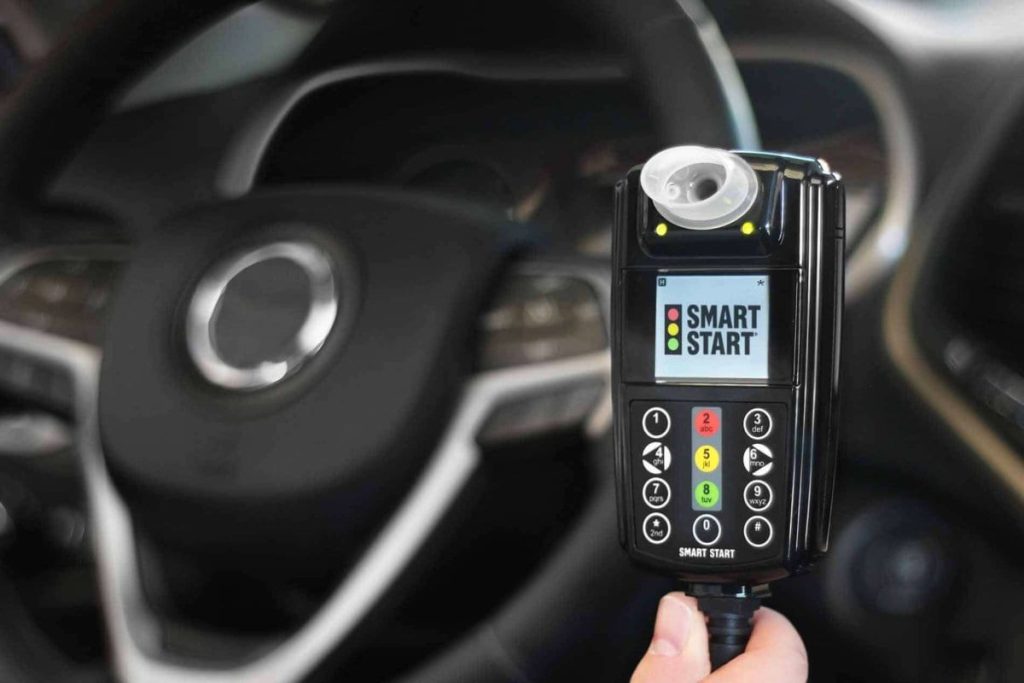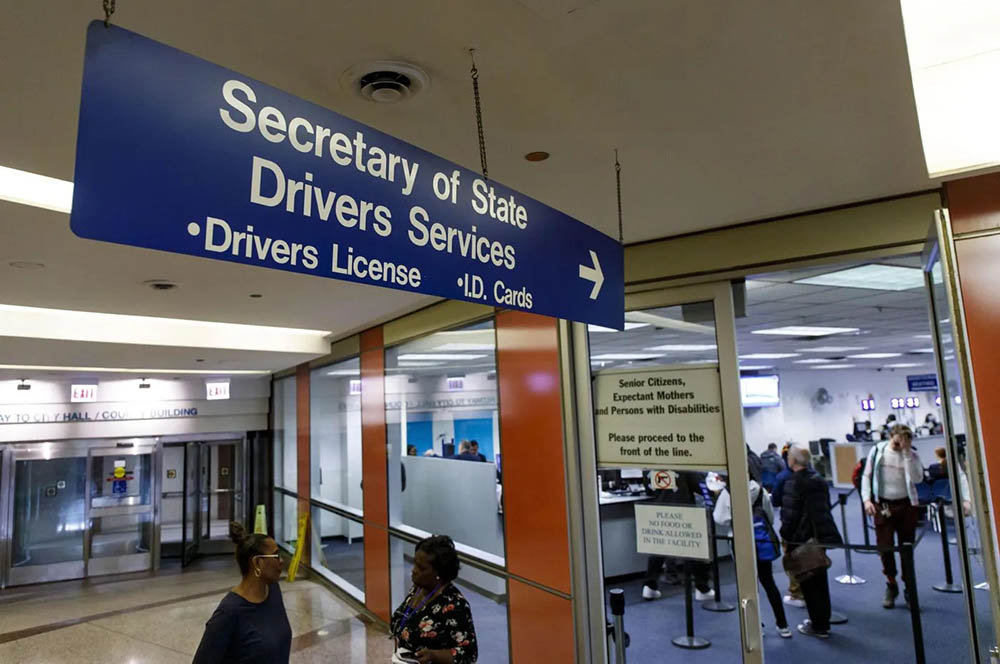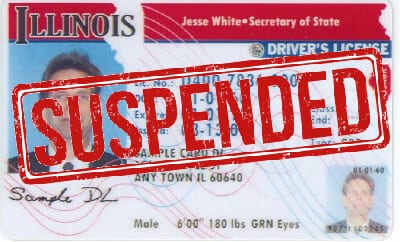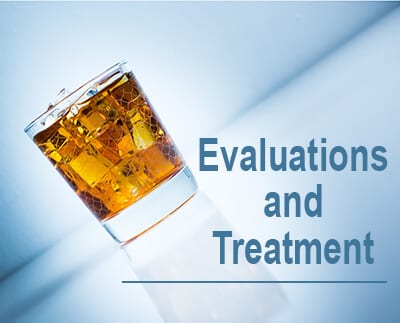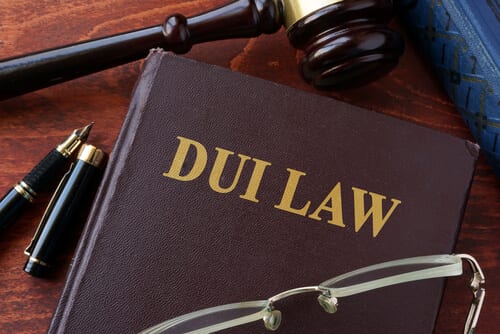who were ticketed or arrested in Cook, DuPage, or Lake County, Illinois.
The Chicago DUI Lawyers
Everything You Need to Know About Illinois DUIs
Illinois DUI laws address the amount of an intoxicating substance you can have in your body while operating a motor vehicle. Violating these DUI laws can lead to criminal charges, which may be either a misdemeanor or felony charge depending on the circumstances which lead to you being charged with a DUI.
According to the Illinois Secretary of State, driving under the influence is defined as “operating a motor vehicle while impaired by alcohol, other drugs, including cannabis (marijuana) prescribed for medical purposes, or intoxicating compounds and methamphetamine.” If you are charged with a DUI, you don’t simply have to accept the charges — and the consequences that come with it, like jail time, hefty fines, and a driver’s license suspension. Instead, you can fight back with the help of an Illinois DUI defense attorney.
What Is the Legal Limit?
In Illinois, drivers are legally considered to be under the influence if they have a blood alcohol content (BAC) of .08 or more, have a tetrahydrocannabinol concentration (THC, found in cannabis) of either 5 nanograms or more per milliliter of whole blood, or 10 nanograms or more per milliliter of other bodily substance, have used any other controlled substance, or are impaired by medication. These laws include both prescription and over-the-counter medications if taking them impairs your ability to drive.
Types of DUIs
There are several DUI laws in Illinois, each relating to different intoxicating substances or combinations of intoxicating substances. The controlling law for DUI in Illinois is 625 ILCS 5/11-501. Under this law, you can be charged with any one or more of the seven subsections of the DUI statute based on the specific facts of your case.
The Illinois DUI law states:
A person shall not drive or be in actual physical control of any vehicle within this State while:
- the alcohol concentration in the person’s blood, other bodily substance, or breath is 0.08 or more based on the definition of blood and breath units in Section 11-501.2;
- under the influence of alcohol;
- under the influence of any intoxicating compound or combination of intoxicating compounds to a degree that renders the person incapable of driving safely;
- under the influence of any other drug or combination of drugs to a degree that renders the person incapable of safely driving;
- under the combined influence of alcohol, other drug or drugs, or intoxicating compound or compounds to a degree that renders the person incapable of safely driving;
- there is any amount of a drug, substance, or compound in the person’s breath, blood, other bodily substance, or urine resulting from the unlawful use or consumption of a controlled substance listed in the Illinois Controlled Substances Act, an intoxicating compound listed in the Use of Intoxicating Compounds Act, or methamphetamine as listed in the Methamphetamine Control and Community Protection Act; or
- the person has, within 2 hours of driving or being in actual physical control of a vehicle, a tetrahydrocannabinol concentration in the person’s whole blood or other bodily substance as defined in paragraph 6 of subsection (a) of Section 11-501.2 of this Code. Subject to all other requirements and provisions under this Section, this paragraph (7) does not apply to the lawful consumption of cannabis by a qualifying patient licensed under the Compassionate Use of Medical Cannabis Program Act who is in possession of a valid registry card issued under that Act, unless that person is impaired by the use of cannabis.
So what does all of this mean? Well, the first two subsections deal specifically with alcohol. The first subsection addresses drivers whose BAC is specifically over the legal limit of .08. This is determined by blood, breath, or urine analysis.
The second subsection specifically deals with suspicion of alcohol in your body that is impairing your ability to operate a motor vehicle. Basically, this means that an arresting officer suspects that you are impaired by alcohol, but has no direct evidence of your BAC being above or below the .08 legal limit.
Subsections 3 and 4 deal with similar circumstances as subsection 2, but address drugs and/or combinations of drugs that render the driver unable to safely operate a motor vehicle.
Subsection 5 addresses drivers suspected of being under the influence of both alcohol and a controlled substance(s) that renders the driver unable to safely operate a motor vehicle.
Subsection 6 is somewhat of a strict liability subsection for drugs and/or controlled substances. Strict liability is a legal concept that essentially means that you can be held accountable for violating the law without the need to prove certain elements, like knowledge or intent. For purposes of this subsection, ANY amount, however minimal, of a controlled substance is in your system while operating a motor vehicle can lead to a DUI charge. This determination is typically made by blood or urine analysis.
Criminal Penalties
If you are arrested for a DUI in Illinois, you can be charged with a Class A misdemeanor or even aggravated felony DUI, depending on the facts and circumstances which led to the arrest. Whether you are charged with a misdemeanor or felony DUI, the State’s Attorney or Village Prosecutor must prove that you are guilty beyond a reasonable doubt in order to meet the burden of proof in their criminal case.
Whether a misdemeanor or felony DUI, the outcomes can vary depending on whether this is a first-time DUI, or a second or greater DUI within a 10 year period. Potential outcomes include:
Dismissal of charges by the State
Finding of not guilty by a judge or jury
Plea to a reduced or lesser included charge
Court Supervision for 1 to 2 years (only for first-time offenders)
Conditional Discharge conviction from 1 to 2 years
Probation for 1 to 2 years
Fine up to $2500
Jail time in the Illinois Department of Corrections:
- Class A Misdemeanor DUIs range from 1 to 364 days in custody
- Class 4 Felony DUIs range from 1 to 12 years in custody depending on the nature of the offense.
- Class 2 Felony DUIs range from 3 to 28 years in custody depending on the nature of the offense.
- Class 1 Felony DUIs range from 4 to 15 years in custody depending on the nature of the offense
- Felony DUIs range from 6 to 30 years in custody depending on the nature of the offense
Supervision is only available for a first-time DUI offender. If you are charged with a second or subsequent DUI, the best offer that the State or village prosecutor can and will make is for Conditional Discharge conviction, in the vast majority of cases.
Statutory Summary Suspension
When charged with a DUI in Illinois, the second thing you must deal with is the Statutory Summary Suspension. This is not a criminal matter. It is a civil issue with the Illinois Secretary of State. Under Illinois law (625 ILCS 5/1-197.6), the Secretary of State can often suspend your license after a DUI arrest—even before you have had your day in court.
Do you remember the phrase “driving is a privilege and not a right?” Well, that privilege is taken away from you if you are over the legal limit or refuse breath, blood, or urine testing. The suspension of your license often goes into effect automatically on the 46th day after you receive a notice of the summary suspension. Notice is often (but not always) given to you on the day of the arrest.
The length of the summary suspension will depend on whether or not you submitted to chemical testing for the presence of alcohol or other intoxicating compounds.
- If you refused to submit to this testing, your license will be suspended for at least one year;
- If you submitted to the testing, and it showed a blood alcohol concentration of 0.08 or more, your license will be suspended for at least six months;
- If you submitted to the testing, and it showed 5 nanograms of THC in your blood or 10 nanograms of THC in your urine, your license will be suspended for at least six months;
- If you submitted to the chemical testing and showed any amount of a drug, substance, or compound resulting from the unlawful use of a controlled substance and/or an intoxicating compound, your license will be suspended for at least six months.
This suspension occurs regardless of the outcome of your DUI. After the period of suspension is over, you must pay a reinstatement fee to the Secretary of State. Your license will remain suspended until it is reinstated.
You Can Fight a Statutory Summary Suspension
After reviewing the police reports and watching the arrest videos, an experienced DUI lawyer may be able to identify ways to challenge the summary suspension. It can benefit you and your case if you speak with a Chicago DUI attorney shortly after your arrest. To challenge a statutory summary suspension, you must request a hearing within 90 days of the arrest. Our Chicago DUI defense lawyers can help you take action to preserve your driver’s license.
Illinois Requires a DUI Evaluation
One of the unique things about DUI cases in Illinois is that the state requires anyone found guilty or pleading guilty to undergo an alcohol and drug evaluation before they can be sentenced. As explained by the Illinois Department of Human Services, the purpose of a DUI evaluation is to determine the extent of the alcohol/drug use and any risk to public safety. The DUI evaluation will influence the actual terms of your potential DUI sentence. The evaluator will ask you questions and review documents related to your history with drugs and alcohol, especially as it related to driving. The evaluations are standardized and they are designed to produce one of four classifications. Your risk classification level determines the recommended hours of treatment.





Effect On Driver’s License
Depending both on what happened during your arrest for suspicion of DUI and the outcome of your DUI case, the status of your driver’s license can vary tremendously. If you are stopped by the police and asked to perform field sobriety tests and then submit to chemical testing, your actions can affect your driving privileges. If your license is suspended because of the results of the chemical testing, it is known as a statutory summary suspension.
Statutory summary suspensions occur when you fail to provide a breath or blood sample after your arrest, fail the chemical test, or are unable to perform or complete the chemical testing. One of the most common reasons that people fail to complete chemical testing occurs when the individual is unable to blow hard enough for the breath to be analyzed.
Failing a chemical test means that there is a BAC of .08 or more, a THC of either 5 nanograms or more per milliliter of whole blood or 10 nanograms or more per milliliter of other bodily substance, or a trace of other drugs. Statutory summary suspensions are automatic and take effect on the 46th day from the date of the suspension notice. Typically, this notice is given to the alleged offender in paper-form labeled as a “Warning to Motorist.”
Illinois DUI laws dictate that an individual who fails chemical testing on a first offense is subject to a 6-month suspension. An individual who fails a second or subsequent test within 5 years is subject to a 1-year suspension of their driver’s license.
An individual who refuses chemical testing on a first offense is subject to a 1-year suspension of their driving privileges. An individual who refuses chemical testing for a second or subsequent test within 5 years is subject to a 3-year suspension.
Even though the DUI laws in Illinois mandate suspensions of driving privileges depending on the results of the chemical tests, these suspensions can be contested in the proper court. If successful, the statutory summary suspension can be rescinded. A successful rescission hearing would result in the motorist’s suspension never take effect or driving privileges to be reinstated, based on the timing of the rescission.
There are additional potential consequences to a motorist’s driving privileges as a result of the criminal DUI charges. Of course, if charges are dismissed or the motorist is found not guilty, there will be no additional suspensions or revocations as a result of the DUI law(s) that the motorist is charged with violating. However, there are consequences if the motorist either pleads guilty or is found guilty of violating an Illinois DUI law.
If you plead or are found guilty, court supervision does not result in a revocation of your license. However, you may be required to pay reinstatement fees of $250 to the Illinois Secretary of State after any suspension period. Most first-time offenders charged with a misdemeanor DUI are eligible for court supervision, provided that there aren’t aggravating circumstances, such as a particularly high BAC, driving with a child in the car, or causing an accident.
On the other hand, a conditional discharge conviction or probation will result in a revocation of your license for a period of time, as determined by the Secretary of State. Judges and the courts do not revoke or suspend licenses. Instead, this is a function left to the Secretary of State, as provided in 625 ILCS 5/6-206.
Once your license is revoked, the only way to regain driving privileges is to petition the Secretary of State for a restricted driving permit or to request a full reinstatement hearing. If you are caught driving during a statutory summary suspension or revocation, you can be charged with a misdemeanor or even felony charge of driving on a suspended or revoked license under 625 ILCS 5/6-303.
How to Beat A DUI in Illinois
As you have seen, a DUI charge carries a significant risk of long-lasting consequences. Do not go up against prosecutors and law enforcement on your own. You need an experienced DUI defense attorney on your side. At Driver Defense Team, we believe in the team concept and Our traffic ticket attorneys are in courtrooms throughout Chicagoland every day defending people charged with drunk driving and other traffic violations. With backgrounds in prosecutions, public defense, and judicial clerkships, our team of Chicago DUI lawyers have seen every side of DUI cases. We are ready to take action to help you fight and beat a DUI charge in Illinois. When you hire our top-rated Illinois DUI defense team, you will get:
- An experienced Chicago DUI attorney who will review your case and find the best possible defense to the charges against you;
- Assistance in preparing for your DUI evaluation;
- Complete and transparent information at every stage of proceedings;
- An opportunity to review everything the government will use against you in court;
- An experienced DUI defense attorney with you at every court appearance; and
- A Chicago DUI defense attorney fighting to make sure your rights are protected in the criminal case and the suspension case.
We know that no two DUI cases are identical. You deserve attentive, personalized legal representation from a team of the best DUI lawyers who are prepared to put in the time and energy to understand the unique nature of your case and to build an effective defense that helps you get the best possible results.
Chicagoland’s
most trusted
law firm
from clients, we know
you’ll love us.
Driving Under the Influence Latest News
Why Hire Driver Defense Team?
and every side of a case. We bring this training and experience to each and every case.
We understand legal jargon and specific laws might be overwhelming. We will communicate with you in an easy-to-understand way so you know the ins and outs of your case as well as we do.
We respect client-based services. This means we won’t defend your case out of a playbook. We will analyze the specifics of your situation and build a strong defense from there.
With a strong defense, comes great outcomes. We have a proven track record of getting DUI clients the results they need to move forward with their lives.
Frequently Asked Question
-
How Serious Can a DUI Be?
A DUI conviction can be fairly serious for a variety of reasons. For example, an individual has to typically pay fines and will often have trouble finding or keeping jobs if convicted of a DUI. In some cases, the charges may be so severe that one is prohibited from driving for years, which is obviously quite inconvenient if the person works in a profession where it’s integral that they drive their vehicle on a regular basis.
Effective representation from an attorney with experience in this area of practice allows an individual to face their charges more confidently and aggressively make a compelling case against them. Experience as DUI defense lawyers means we are able to recognize weaknesses in the prosecution’s defense while being aggressive defenders of your rights too.
-
How Much Does It Cost To Hire A DUI Attorney?
The cost of hiring a DUI attorney varies depending on the severity of the charges, the lawyer’s experience, and the location of the case. However, most DUI attorneys charge a flat fee for their services. The cost of hiring an attorney should not be a deterrent from seeking legal representation if you are facing DUI charges. There is a lot more at stake than money – your freedom is on the line. Contact us today for a free consultation to discuss your case and the associated costs.
-
Are All DUI Charges the Same?
No, DUI charges vary depending on the facts and circumstances of each case. The penalties for a DUI conviction also vary depending on the state in which you are convicted. However, all DUI convictions carry serious penalties, including fines, jail time, and loss of driving privileges. If you have been charged with a DUI, it is important to contact an experienced DUI defense lawyer right away. A skilled attorney will be able to review the facts and evidence in your case and develop a strategy to achieve the best possible outcome. Contact DDT Law Group today for a free consultation.
-
When Should I Reach Out to a DUI Lawyer?
DUI law is complex and ever-changing. That’s why you need an experienced DUI defense lawyer on your side if you’ve been charged with a DUI. The sooner you reach out to an attorney, the better. An attorney will be able to review the facts of your case and develop a defense strategy. Contact DDT Law Group today for a free consultation.
-
Why Was I Pulled Over for a DUI?
The police can pull you over for a DUI if they have probable cause to believe that you are driving under the influence of alcohol or drugs. Probable cause can be based on the officer’s observations, such as your behavior, appearance, and speech. The officer may also administer field sobriety tests, which are designed to determine if you are impaired. If the officer believes you are impaired, you will be placed under arrest and charged with DUI.
-
What Happens If I Refuse a Breathalyzer Test?
In Illinois, if you refuse to submit to a chemical test (breath, blood, or urine), your driver’s license may be suspended for six months for a first offense. If you have a prior DUI conviction, your driver’s license will be suspended for a longer period of time. You may also be subject to additional criminal penalties for refusing a breathalyzer test. It is important to contact an attorney if you have been charged with DUI and refused to submit to a chemical test. An attorney can help you challenge the suspension of your driver’s license and may be able to get the charges against you reduced or dismissed.
-
What Are the Penalties for a DUI Conviction?
The penalties for a DUI conviction vary depending on the state in which you are convicted. However, all DUI convictions carry serious penalties, including fines, jail time, and loss of driving privileges. In Illinois, the penalties for a first-time DUI conviction include expensive fines, up to one year in jail, and a mandatory driver’s license suspension of at least six months. If you have been charged with a DUI, it is important to contact an experienced DUI defense lawyer right away. A skilled attorney will be able to review the facts and evidence in your case and develop a strategy to achieve the best possible outcome.
-
What Are Some of the Defenses to a DUI Charge?
There are many defenses that can be raised in a DUI case. Some of the most common defenses include challenging the stop, challenging the field sobriety tests, and challenging the chemical test results. An experienced DUI defense lawyer will be able to review the facts and evidence in your case and determine which defenses are most likely to be successful. Contact DDT Law Group today for a free consultation.
-
Can I Get My DUI Charge Reduced or Dismissed?
In some cases, it may be possible to get your DUI charge reduced or dismissed. This often depends on the facts and circumstances of your case, as well as the prosecutor’s office handling your case. If you have been charged with a DUI, it is important to contact an experienced DUI defense lawyer right away. A skilled attorney will be able to review the facts and evidence in your case and determine if there are any grounds for getting the charges against you reduced or dismissed. Contact DDT Law Group today for a free consultation.


